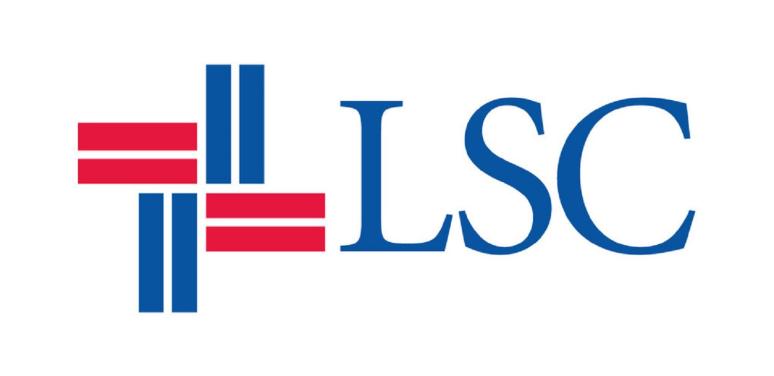More than Half of Americans Mistakenly Think They Have a Right to an Attorney in All Civil Cases

Contact
Carl Rauscher
Director of Communications and Media Relations
rauscherc@lsc.gov
202-295-1615
More than Half of Americans Mistakenly Think They Have a Right to an Attorney in Civil Cases. New survey also shows many don’t seek legal help with civil matters that can be life-altering
WASHINGTON – More than half of Americans (56%) mistakenly believe they are entitled to free legal representation if they cannot afford a lawyer for civil matters, and 18% are unsure, according to a new survey. That number is even higher for young adults (18-34) with two of three (67%) holding this belief.
“The lack of awareness among Americans about the resources available to them regarding civil legal matters is concerning and points to how much work still needs to be done to ensure all Americans have access to the legal system,” said Ronald Flagg, president of the Legal Services Corporation. “For instance, because many people don’t realize that they are not entitled to free representation for civil legal matters, they may end up in civil court without representation - unable to fight for themselves.”
The survey, which was conducted online within the United States by The Harris Poll on behalf of the Legal Services Corporation (LSC) among more than 2,000 American adults, also showed that many who experienced a civil legal matter within the past three years (59%) didn’t seek out legal help from an attorney who could have been pivotal in getting their issues resolved. This includes:
A majority (63%) of Americans who were contacted by creditors or collection agencies
56% of Americans who were fired from a job
52% of Americans who experienced a natural disaster
82% of older Americans (ages 55+) who were victims of a scam or identity theft
The data come at a noteworthy moment as LSC marks its 50th anniversary with an outreach campaign called Protecting the Promise.
This issue is playing a part in the national housing crisis as well. Nearly one of three Americans who were threatened with eviction or foreclosure in the past three years (31%) didn’t seek legal help. Additionally, 35% of those Americans who were threatened say they did reach out for legal help but didn’t receive it.
The survey also found that many Americans are misinformed about what issues require legal help. One of three Americans who didn’t seek legal help for civil matters in the past three years say they didn’t do so because they thought they could just deal with the problem on their own (33%) or they didn’t think the problem was serious enough for legal help (33%). Additionally, almost a quarter (23%) didn’t reach out for legal assistance because they didn’t think a legal professional could help with their problem.
“It may surprise many Americans to know that civil legal matters touch several areas of our lives,” said Flagg. “From the threat of eviction or foreclosure, to domestic violence incidents, to harassment from debt collectors, or experiencing natural disasters – these are all issues that can be helped with the guidance of an attorney, so it’s important that Americans know that and have access to the legal representation they need.”
There appears to be a gender divide in some cases, with women being less likely to seek out legal help than men when experiencing civil matters over the past three years (66% vs. 53%), including 79% of women vs. 48% of men who didn’t seek legal help when contacted by creditors or collection agencies.
A lack of awareness may not be the only barrier to accessing legal help for civil legal matters. Among Americans who did not seek legal assistance for a civil matter they experienced over the past three years, nearly a third (32%) did not do so because they were worried about the cost. When asked if they would know how to find legal representation for a civil matter if they needed it, young Americans are more likely to say they would not, compared to older groups (38%: 18-34; 27%: 35-44; 29%: 45-54; 28%: 55-64; 19%: 65+).
“It’s not enough to ensure that Americans know about the resources available to them,” said Flagg. “There is a gap in the legal services available to many Americans – especially low-income Americans – and as a result, many are not able to receive the help they need. This needs to change and it is what LSC as well as civil legal aid organizations around the country work toward every day.”
Survey Methodology
This survey was conducted online within the United States by The Harris Poll on behalf of Legal Services Corporation (LSC) from July 11-July 15, 2024 among 2,096 U.S. adults ages 18+. The sampling precision of Harris online polls is measured by using a Bayesian credible interval. For this study, the full sample data is accurate to within +/- 2.5 percentage points using a 95% confidence level.
For complete survey methodology, including weighting variables and subgroup sample sizes, please contact Carl Rauscher at rauscherc@lsc.gov.
To See the article on the LSC website click the following link: Legal Services Corporation
Legal Services Corporation (LSC) is an independent nonprofit established by Congress in 1974. For 50 years, LSC has provided financial support for civil legal aid to low-income Americans. The Corporation currently provides funding to 130 independent nonprofit legal aid programs in every state, the District of Columbia, and U.S. territories.
